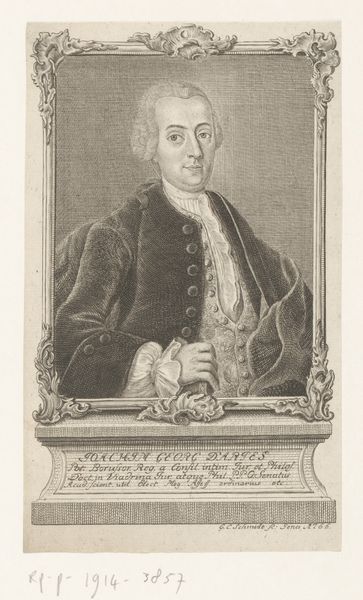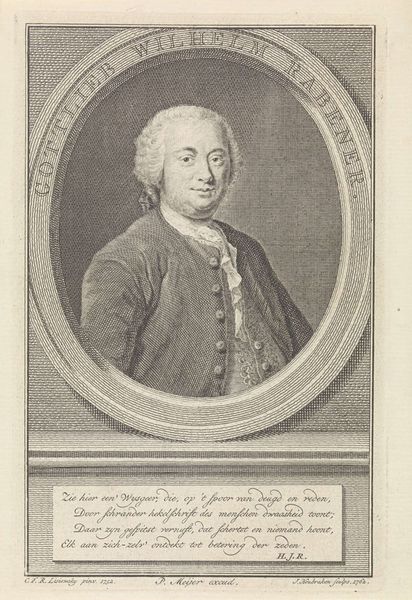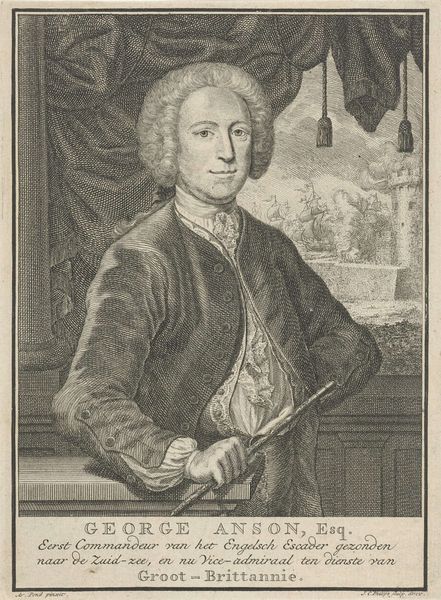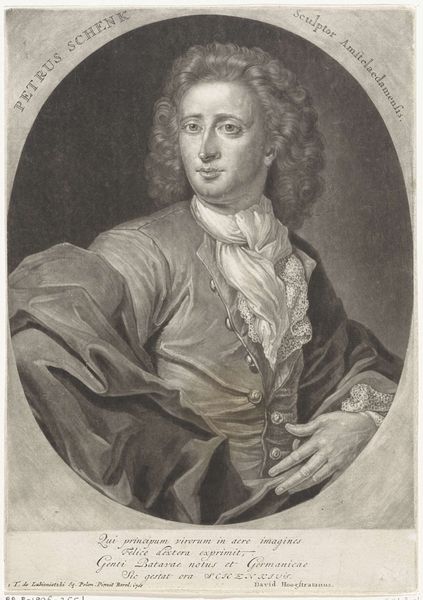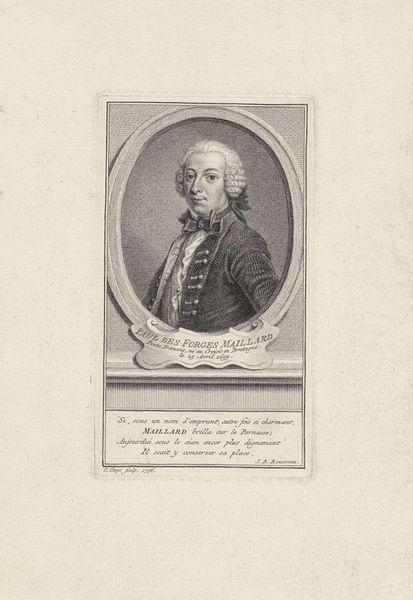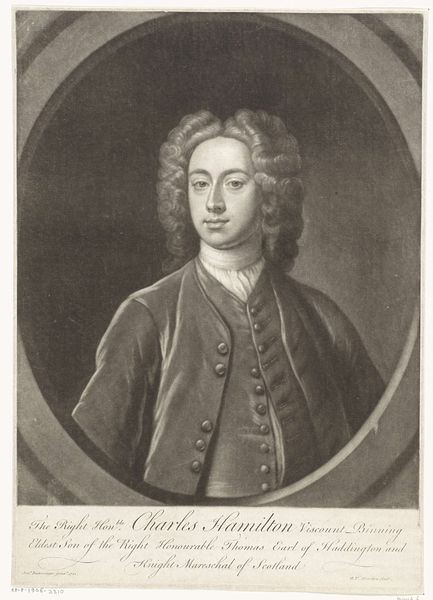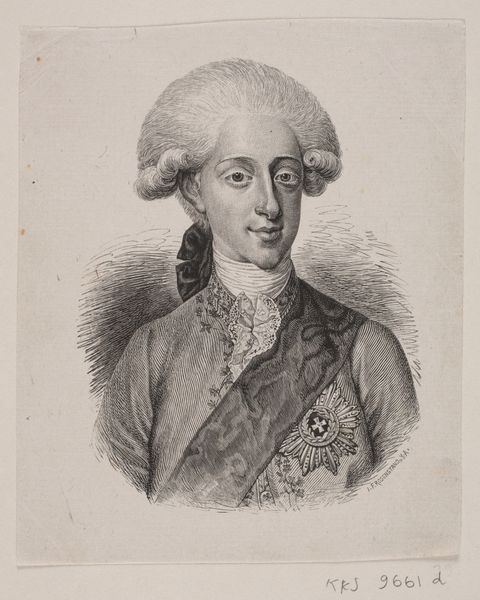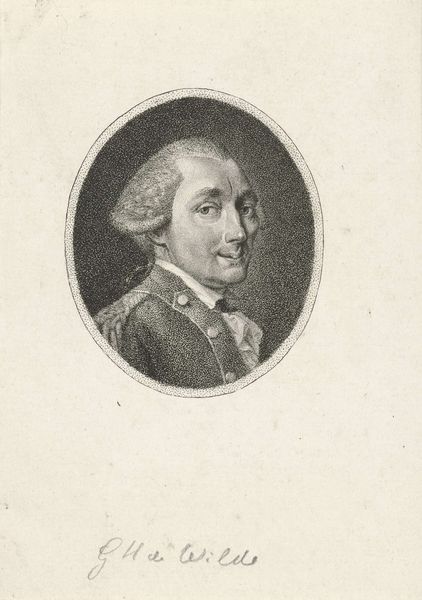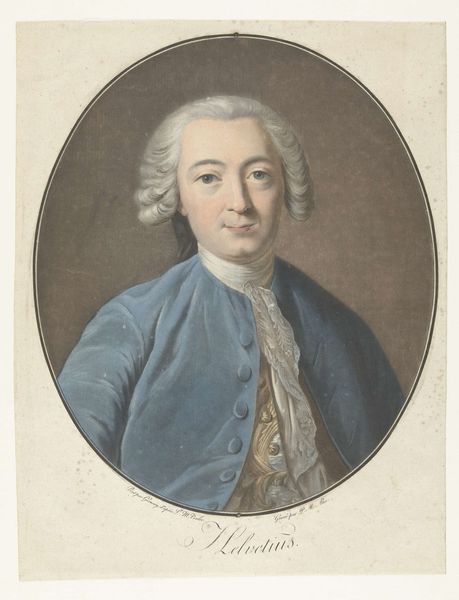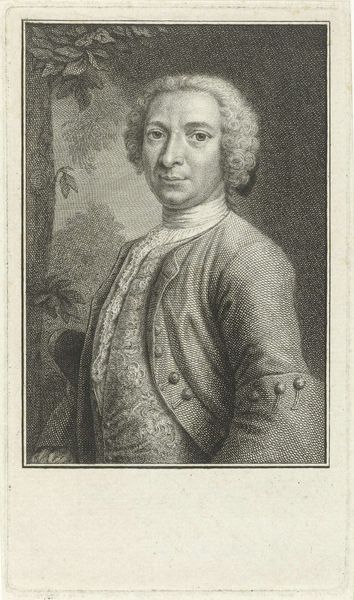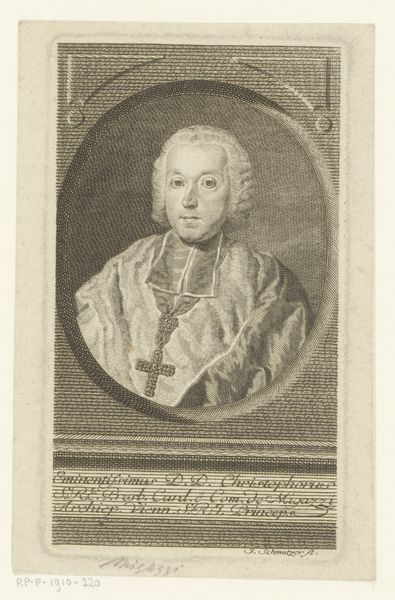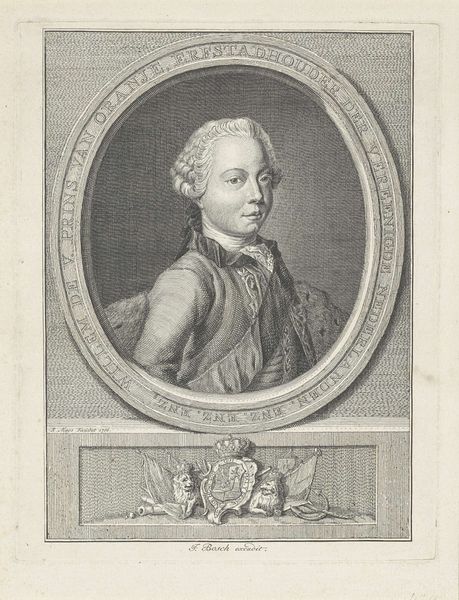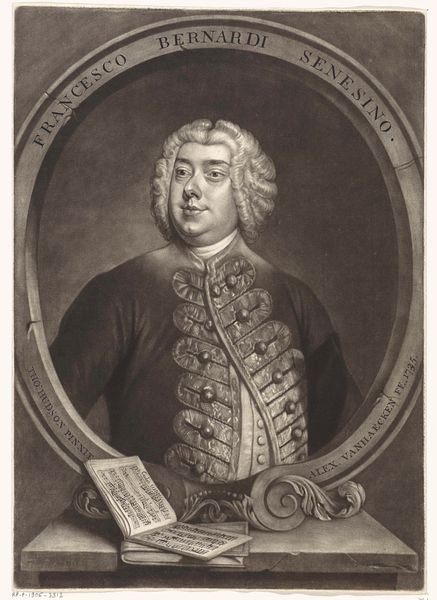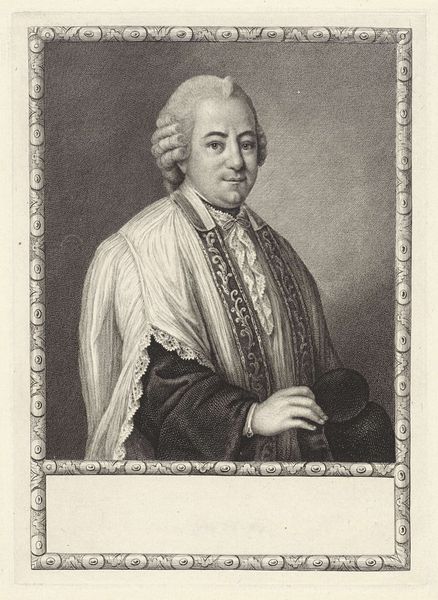
print, engraving
#
portrait
#
baroque
# print
#
charcoal drawing
#
pencil drawing
#
engraving
#
portrait art
Dimensions: height 360 mm, width 256 mm
Copyright: Rijks Museum: Open Domain
Editor: This is "Portret van Willem IV, prins van Oranje-Nassau," a print from 1747 by Gerhard Bockman. The detail in the engraving is quite striking, particularly in the clothing and hair. It almost feels like propaganda. What are your thoughts on how this piece reflects its historical moment? Curator: You're right, it likely functioned as propaganda. Prints like these served a crucial role in image-making and dissemination, especially for figures like Willem IV, who held significant political power as stadtholder. It is less about realism and more about portraying power and legitimacy, carefully constructed and broadly distributed. Editor: So, beyond just being a portrait, it's making a statement about authority? Curator: Precisely. The Baroque style contributes to this sense of grandeur. Notice the elaborate details and the emphasis on ornamentation – these weren't just aesthetic choices. How might such a representation solidify Willem IV’s rule in the eyes of the public? Editor: I suppose seeing him depicted so formally would reinforce his authority and maybe even inspire a sense of confidence in his leadership, regardless of what his leadership actually looked like. It would signal stability during that time. Curator: Exactly! Consider too that the wide distribution of these prints effectively created a visual campaign. It's not merely art; it’s a powerful tool shaping public opinion and constructing a specific historical narrative around Willem IV. Editor: So, we're really seeing the birth of political image-making as a deliberate strategy here? This makes me rethink my initial viewing of it! Curator: Indeed. This print reminds us how art actively participates in political discourse. What looks like a simple portrait on the surface becomes a fascinating example of constructed imagery influencing historical perception.
Comments
No comments
Be the first to comment and join the conversation on the ultimate creative platform.
